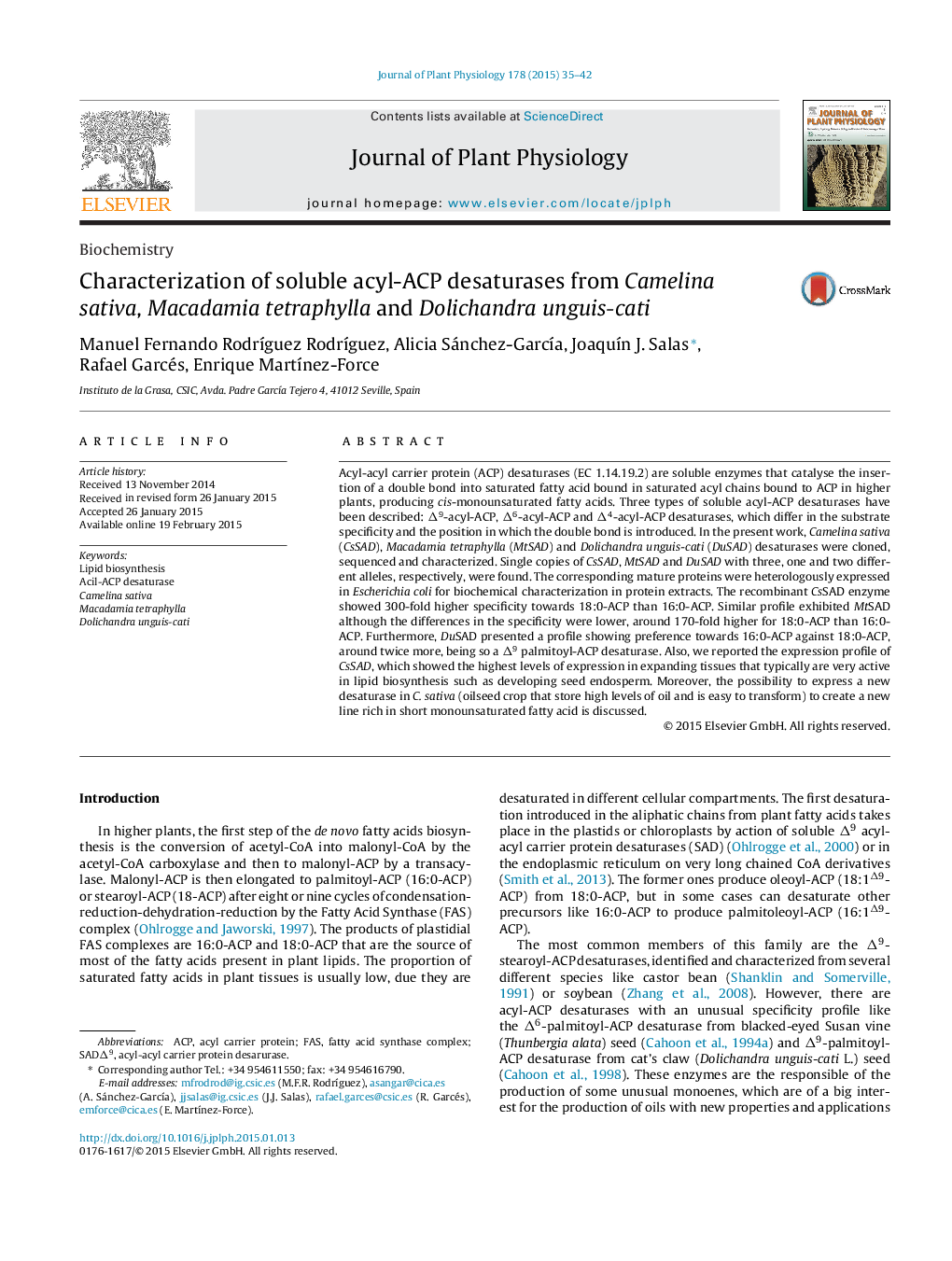| Article ID | Journal | Published Year | Pages | File Type |
|---|---|---|---|---|
| 2055647 | Journal of Plant Physiology | 2015 | 8 Pages |
Acyl-acyl carrier protein (ACP) desaturases (EC 1.14.19.2) are soluble enzymes that catalyse the insertion of a double bond into saturated fatty acid bound in saturated acyl chains bound to ACP in higher plants, producing cis-monounsaturated fatty acids. Three types of soluble acyl-ACP desaturases have been described: Δ9-acyl-ACP, Δ6-acyl-ACP and Δ4-acyl-ACP desaturases, which differ in the substrate specificity and the position in which the double bond is introduced. In the present work, Camelina sativa (CsSAD), Macadamia tetraphylla (MtSAD) and Dolichandra unguis-cati (DuSAD) desaturases were cloned, sequenced and characterized. Single copies of CsSAD, MtSAD and DuSAD with three, one and two different alleles, respectively, were found. The corresponding mature proteins were heterologously expressed in Escherichia coli for biochemical characterization in protein extracts. The recombinant CsSAD enzyme showed 300-fold higher specificity towards 18:0-ACP than 16:0-ACP. Similar profile exhibited MtSAD although the differences in the specificity were lower, around 170-fold higher for 18:0-ACP than 16:0-ACP. Furthermore, DuSAD presented a profile showing preference towards 16:0-ACP against 18:0-ACP, around twice more, being so a Δ9 palmitoyl-ACP desaturase. Also, we reported the expression profile of CsSAD, which showed the highest levels of expression in expanding tissues that typically are very active in lipid biosynthesis such as developing seed endosperm. Moreover, the possibility to express a new desaturase in C. sativa (oilseed crop that store high levels of oil and is easy to transform) to create a new line rich in short monounsaturated fatty acid is discussed.
Graphical abstractFigure optionsDownload full-size imageDownload as PowerPoint slide
